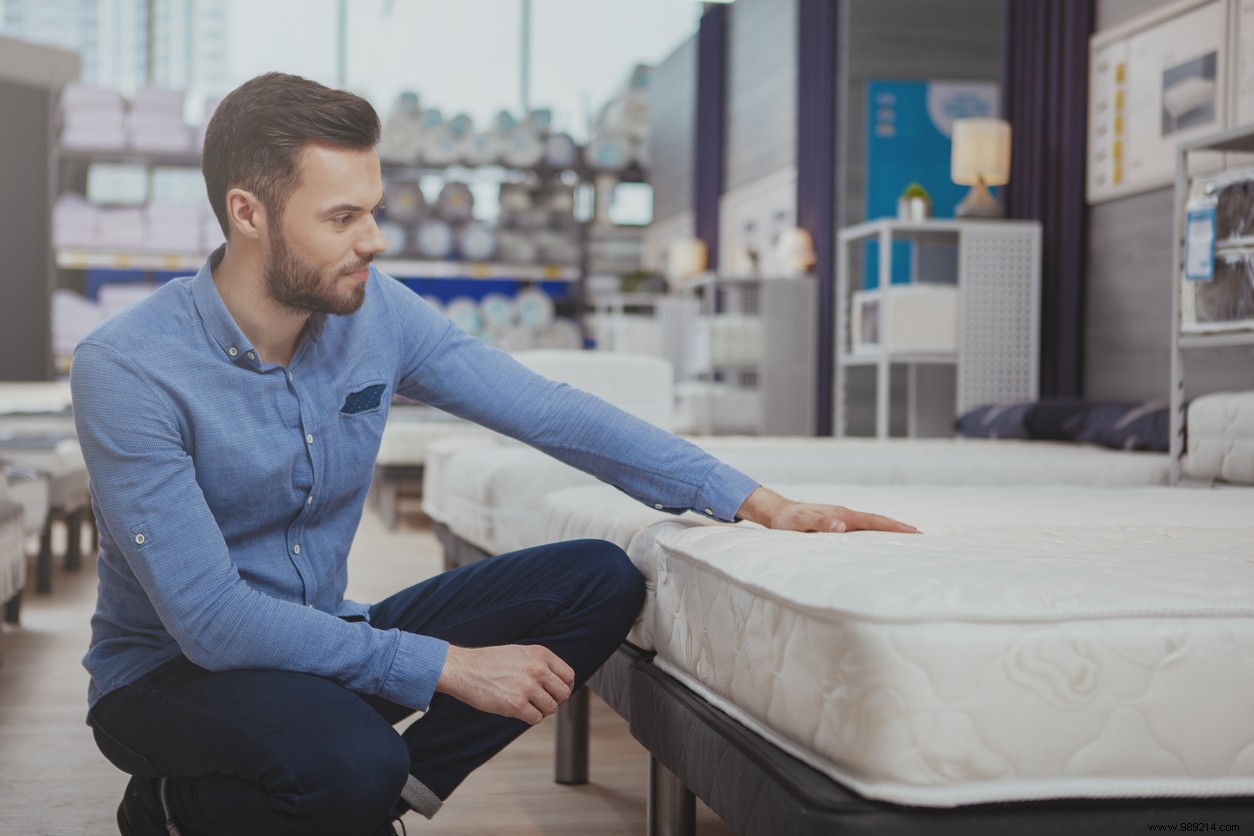Sleep is very important for our body. Indeed, having a good sleep is a guarantee of good physical and mental shape. Many people seek to improve the quality of their sleep and have better nights. Here are some tips and details about research and innovations on the subject.
"Sleep is a decreased state of consciousness between two periods of wakefulness. It is characterized by a loss of vigilance, a decrease in muscle tone and a partial conservation of sensory perception [...] Schematically, sleep corresponds to a succession of 3 to 6 successive cycles, of 60 to 120 minutes each. A cycle is itself made up of an alternation of slow-wave sleep and REM sleep, each corresponding to a different brain activity" can we read in a detailed publication published by Inserm in 2017.
Sleep is the source of many benefits for our body:recovery, boosting the immune system or even reducing stress and mood disorders. A good quality of sleep also goes hand in hand with a consolidation of learning and memory capacities, a regulation of the metabolism, a good libido or even a slowing down of skin aging.
You should know that sleep is constantly the subject of scientific research, until recently. In 2020, Canadian researchers explained that disturbed sleep in adolescents could increase the risk of depression in adulthood . In September 2021, Swedish scientists delivered a surprising study concerning the impact of lunar cycles on sleep. However, these cycles would have more intense effects on men than on women.
Material-wise, there seems to be nothing better than good bedding. Today there are hundreds of different mattresses according to individual needs – back pain, comfort (e.g. firmness), shape memory, etc. – and in terms of price range. Choosing a good mattress can also have a positive effect on the ability to fall asleep and sleep well. In any case, this opinion is shared by 92% of those questioned in a 2011 survey by the American Sleep Foundation. However, good bedding is obviously not everything and some things should be avoided before going to bed.

To find sleep easier and sleep better, various tricks are possible. If the need to rest is felt during the day, it is best to favor "micro-naps", in other words, do not go beyond 30 minutes. A few hours before going to bed, having a heavy dinner is not really ideal, as is snacking on certain ingredients such as chocolate or even drinking tea, soda or coffee. However, a neuroscientist recently claimed that drinking coffee in the late afternoon – or early evening – does not necessarily prevent you from sleeping at night. In reality, this is not valid for all organisms since each person is different.
Let's also mention the fact that technological innovation is interested in our sleep. An example is the microbead blanket, a weighted blanket that exerts light pressure on the body. There is also talk of smart bedding , i.e. pillows with integrated air conditioning or mattresses that record body movements and identify the different sleep cycles. Let's not forget the headphones, intended to attenuate surrounding noise and play relaxing music.
In recent years, a phenomenon has been identified by various researchers as an important sleep disturbance factor :the smartphone. Indeed, using a mobile phone just before going to bed is harmful. The problem is none other than the blue light from the screens. The latter is not harmful in itself but it all depends on the time of exposure. During the day, blue light maintains alertness and promotes cognitive performance. On the other hand, use at night falls prevents the secretion of melatonin by sending the wrong signals to the brain.
Currently, some work aims to develop a new generation of screens . For the experts, it is a question of finding a way to decrease or increase the cyan (blue) color levels of the screens. The objective is to explore two avenues, i.e. to develop screens containing cyan for people who need to use a computer during the night, and others without cyan in order to avoid any sleep disturbance. However, not everything is to be thrown away at the level of smartphones. Some applications allow you to manage the brightness of the screen and thus reduce blue reflections, or even offer personalized monitoring, in order to better understand your circadian rhythm and manage your sleep.
Finally, a British study from March 2021 explained how smartphone addiction could add difficulty with sleep. Of a thousand students surveyed, 40% showed signs of addiction two-thirds of whom reported sleep problems . In general, it is best to try to limit your exposure time smartphones, tablets and televisions and avoid their use after 9 p.m. .